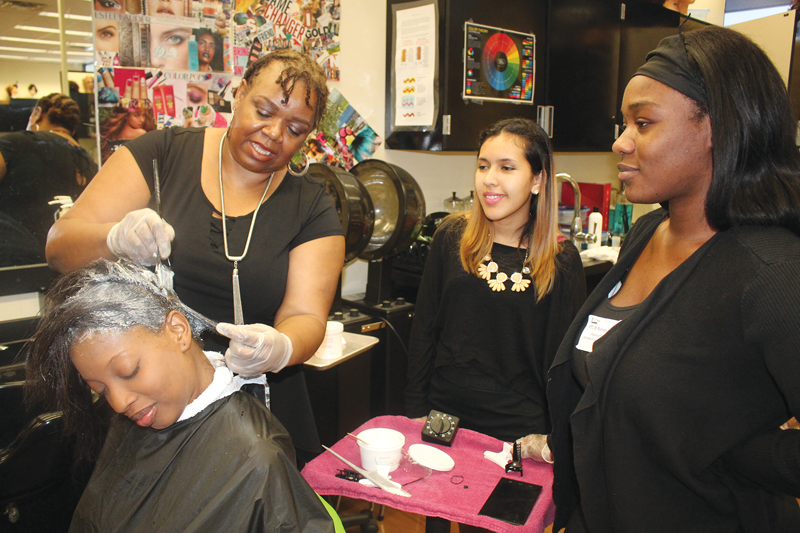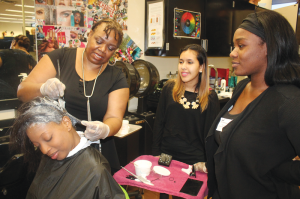Lead instructor April Barron instructs students on how to chemically relax hair.

 Before a student can even think about putting their hands into someone’s hair, they must learn the science of hair, skin, scalp and nails, which includes learning different diseases and disorders.
Before a student can even think about putting their hands into someone’s hair, they must learn the science of hair, skin, scalp and nails, which includes learning different diseases and disorders.